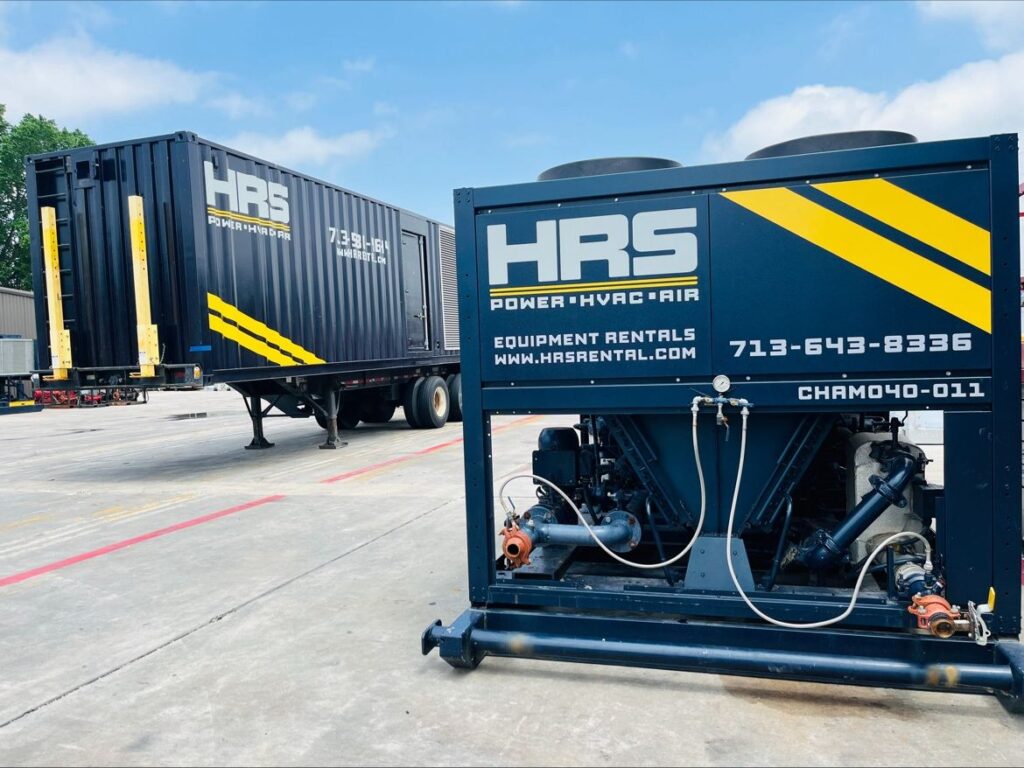Maintaining energy efficiency, occupant comfort, and operational uptime is critical in your role as an energy manager. Whether you’re overseeing a facility shutdown, responding to an unplanned failure, managing seasonal demand, or supporting a special event, temporary HVAC solutions can bridge the gap—without compromising performance or budget.
At HRS, we specialize in supporting energy professionals with strategic, right-sized HVAC rentals—engineered to deliver reliability, efficiency, and seamless integration.

Here are 10 essential tips to help you plan your next HVAC rental with confidence:
1. Define your hvac objectives early
Clear objectives—whether cooling critical equipment, supplementing building comfort, or supporting a temporary load—help HRS engineers align the right solution with your operational goals.
Not sure where to start? We’ll help you scope it out.
2. Accurately calculate load requirements
Oversizing wastes energy; undersizing risks system failure. We use industry-standard load calculation tools and field experience to help you size the system precisely—optimizing both cost and performance.
3. Assess installation footprint and logistics
Available space (e.g., rooftop, grade-level pad, or remote lot) affects everything from crane access to airflow. HRS will conduct site visits and develop an installation plan that minimizes disruption and aligns with your facility’s layout.
4. Evaluate equipment location and power access
Distance from power or chilled water systems isn’t a barrier—we’ll help engineer a solution that balances proximity, performance, and practicality, including temporary piping or cabling as needed.
5. Plan for electrical requirements
Power constraints can complicate rentals. We’ll identify the appropriate voltage, amperage, and connection points—coordinating generators or temp power services when required.
6. Factor in building or site restrictions
Managing HVAC needs in a historic or structurally sensitive facility? HRS navigates code compliance, load restrictions, and permitting requirements to deploy safe, effective solutions without compromising your building’s integrity.
7. Understanding regulatory and environmental compliance
Whether it’s ASHRAE standards, IAQ requirements, emissions limits, or sterilization protocols, HRS ensures rental systems meet local and industry-specific regulations—critical in healthcare, manufacturing, and lab environments.
8. Look for flexible rental terms
Project timelines can shift. Our rental plans are designed for agility—scaling up, extending, or demobilizing based on your evolving operational needs.
9. Prioritize scalable solutions
Temporary needs shouldn’t come with long-term commitments. HRS offers modular, scalable systems that grow (or shrink) with your energy demand—ideal for multi-phase projects or uncertain load forecasts.
10. Leverage engineering support throughout the process
From initial scoping to commissioning and final teardown, our team of HVAC specialists and field technicians supports every stage. You’re not just renting equipment—you’re gaining a strategic partner.
Final thoughts
Temporary HVAC solutions from HRS offer more than short-term relief—they provide a flexible, cost-effective way to manage your facility’s energy and operational priorities. Whether you’re navigating an emergency or planning for the future, we deliver performance you can count on.
Let’s plan your next rental the right way—reach out to our team to get started.
